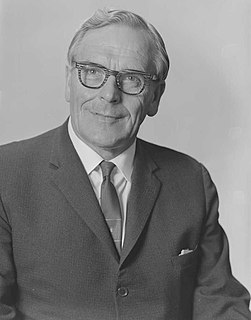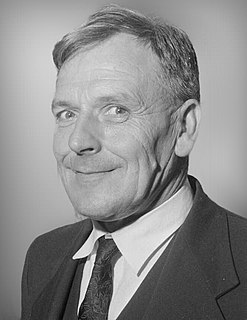Related Research Articles

David Kevin Ogden is a former mayor of Lower Hutt in the Wellington region of New Zealand.

Percy Dowse was a New Zealand politician. He was mayor of Lower Hutt from 1950 to 1970.

William Cooper Gregory was a New Zealand politician who was the Mayor of Lower Hutt from 1949 to 1950.

The 1941 Wellington City mayoral election was part of the New Zealand local elections held that same year. In 1941, elections were held for the Mayor of Wellington and fifteen city councillors plus seats on the Wellington Hospital Board and Wellington Harbour Board. The polling was conducted using the standard first-past-the-post electoral method.
The Wellington Citizens' Association, was a right-leaning local body electoral ticket in Wellington, New Zealand. It was formed in 1911 by merging the selection process of council candidates of several civic interest groups and business lobby groups. Its main ambitions were to continue to control the Wellington City Council, reduce local spending and deny left-leaning Labour Party candidates being elected.

The 1959 Wellington City mayoral election was part of the New Zealand local elections held that same year. In 1959, elections were held for the Mayor of Wellington plus other local government positions including fifteen city councillors. The polling was conducted using the standard first-past-the-post electoral method.
The 1986 Auckland City mayoral election was part of the New Zealand local elections held that same year. In 1986, elections were held for the Mayor of Auckland plus other local government positions including twenty city councillors. The polling was conducted using the standard first-past-the-post electoral method.

Alister Scott Abernethy was a New Zealand trade unionist, politician and public servant. Over a 39 year period he was an elected member in three different parts of New Zealand.
John Bryan Seddon was a New Zealand politician and chief executive. He was the deputy mayor of Lower Hutt and later chief executive of Porirua City Council for twenty years from 1980 until 2000.

Edward Percival Rishworth was a New Zealand politician who was Mayor of Lower Hutt from 1918 to 1921.

The 1935 Lower Hutt mayoral election was part of the New Zealand local elections held that same year. The elections were held for the role of Mayor of Lower Hutt plus other local government positions including the nine borough councillors, also elected biannually. The polling was conducted using the standard first-past-the-post electoral method.

The 1938 Lower Hutt mayoral election was part of the New Zealand local elections held that same year. The elections were held for the role of Mayor of Lower Hutt plus other local government positions including the nine borough councillors, also elected triennially. The polling was conducted using the standard first-past-the-post electoral method.

The 1941 Lower Hutt mayoral election was part of the New Zealand local elections held that same year. The elections were held for the role of Mayor of Lower Hutt plus other local government positions including the nine city councillors, also elected triennially. The polling was conducted using the standard first-past-the-post electoral method.

The 1949 Lower Hutt mayoral by-election was held to elect a successor to Ernst Peterson Hay who resigned as Mayor of Lower Hutt upon his appointment as a judge of the Supreme Court. The polling was conducted using the standard first-past-the-post electoral method.

The 1950 Lower Hutt mayoral election was part of the New Zealand local elections held that same year. The elections were held for the role of Mayor of Lower Hutt plus other local government positions including twelve city councillors, also elected triennially. The polling was conducted using the standard first-past-the-post electoral method.
Harcourt Chenoweth "Chen" Werry was a New Zealand businessman and politician. He was a Lower Hutt City Councillor for 36 years from 1950 to 1986 and was twice deputy mayor.

The 1953 Lower Hutt mayoral election was part of the New Zealand local elections held that same year. The elections were held for the role of Mayor of Lower Hutt plus other local government positions including fifteen city councillors, also elected triennially. The polling was conducted using the standard first-past-the-post electoral method.

The 1956 Lower Hutt mayoral election was part of the New Zealand local elections held that same year. The elections were held for the role of Mayor of Lower Hutt plus other local government positions including fifteen city councillors, also elected triennially. The polling was conducted using the standard first-past-the-post electoral method.

The 1959 Lower Hutt mayoral election was part of the New Zealand local elections held that same year. The elections were held for the role of Mayor of Lower Hutt plus other local government positions including fifteen city councillors, also elected triennially. The polling was conducted using the standard first-past-the-post electoral method.

The 1962 Lower Hutt mayoral election was part of the New Zealand local elections held that same year. The elections were held for the role of Mayor of Lower Hutt plus other local government positions including fifteen city councillors, also elected triennially. The polling was conducted using the standard first-past-the-post electoral method.
References
- Millar, David P. (1972). Once Upon a Village: A History of Lower Hutt 1819-1965. Lower Hutt: New Zealand University Press & LHCC. OCLC 154232923.
- McGill, David (1991). Lower Hutt – The First Garden City. Petone, New Zealand: Lower Hutt City Council. ISBN 1-86956-003-5.